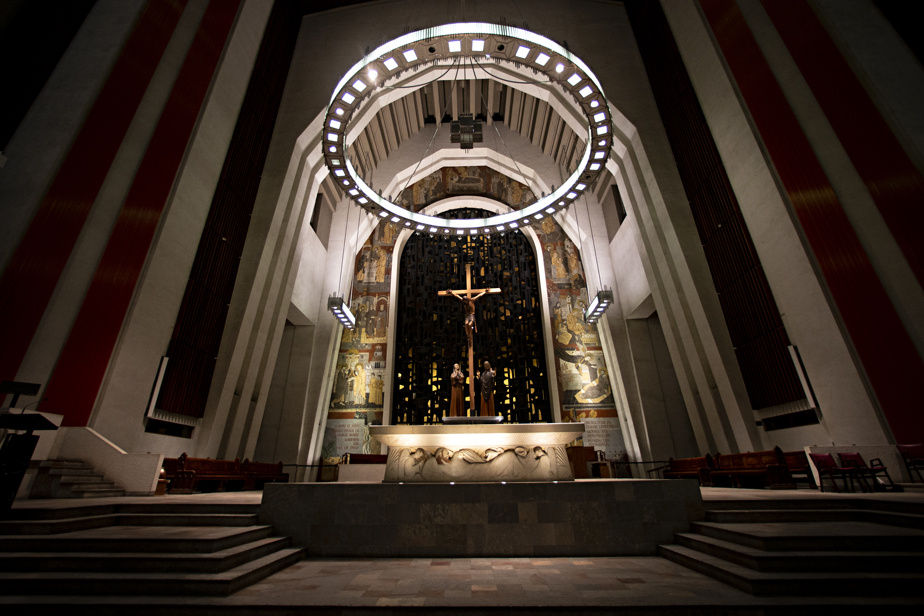Sunday prayer has always punctuated Radio-Canada television programming without really questioning its relevance. It is like yet another revival of Les Belles Histoires des pays d’en haut which fills air time when few people are in front of their televisions.
Today, I do not want to question prayer on television. I know that my 93- and 99-year-old grandmothers religiously listen to Lord’s Day on Sundays because they can’t move easily anymore. I understand that this program brings enormous comfort to sick, lonely and vulnerable people. The question I would like to ask is: does Catholic rite prayer belong on state television? If private channels choose to broadcast the Catholic, Jewish, Muslim, Satanic Mass and any existing religion, that is none of my business. They can act according to their values and visions.
On the other hand, I would expect the state-owned Radio-Canada to show total neutrality on religious issues and not show favoritism towards a single rite.
Unfortunately, she deleted the only such show recently, Second Regard. While its English counterpart CBC does not broadcast a mass, our good old French-language channel does, thus going against the principles it defends, the institutional values that can be found on its online content.
Indeed, the Radio-Canada Code of Conduct adopted on October 1, 2017 states on page 6 that: “The prejudicial differential treatment of a person or group for reasons based in whole or in part on one or more grounds unlawful discrimination is prohibited. Currently considered as such are race, national or ethnic origin, color, religion […]. However, Radio-Canada, by rendering a public service to people who define themselves as Catholics, is itself offering a different treatment to a part of the population…
Time passes, just as people’s values change. Multiculturalism is displayed in all aspects of our existence and it enriches us. In contact with the Other, we question our values, our beliefs and our habits. The Canadian landscape is different with many newcomers and political refugees. Sometimes we have to set the record straight and also adjust our political and state institutions so that they reflect today’s realities.
In 1984, Pope John Paul II was welcomed to Quebec as a rock star and celebrated Mass in a packed Olympic Stadium.
With the aging of the population (including the priests), the last dominoes of an institution that controlled Quebec until the 1960s fell one after the other. Churches close quickly, are transformed or downright demolished. The number of parishes decreases drastically. In the Diocese of Chicoutimi, for example, 35 parishes were abolished on January 1. We have even reached the point of uniting the dioceses for lack of priests, faithful and staff. In 2019, the dioceses of Saint-Jérôme and Mont-Laurier were merged and it is expected that other mergers will follow. The Church is dying. It is entangled by financial and sexual scandals and it preaches archaic values.
Radio-Canada presents on its television, radio and digital platforms reports, documentaries, interviews and podcasts showing the abuses of the Catholic institution, but it continues to give it space in the public space. Contradiction?
The Quebec state has become secular, we have abolished prayers at city councils, exit the crucifixes. We must recognize that this debate has fueled a certain racism and ostracization of people who identify as Muslims, for example. On the other hand, the validity of the very principle of state neutrality on religious matters is essential, because it is the only way to be inclusive and not to show favoritism towards one religion or another. For some this is a false debate and much more important things like the environment should be on our minds, and I tend to buy into that view. But to move forward on major issues, we sometimes have to clean up our institutions so that they reflect Quebec society. If historically Quebec was essentially Catholic, it is no longer so.

